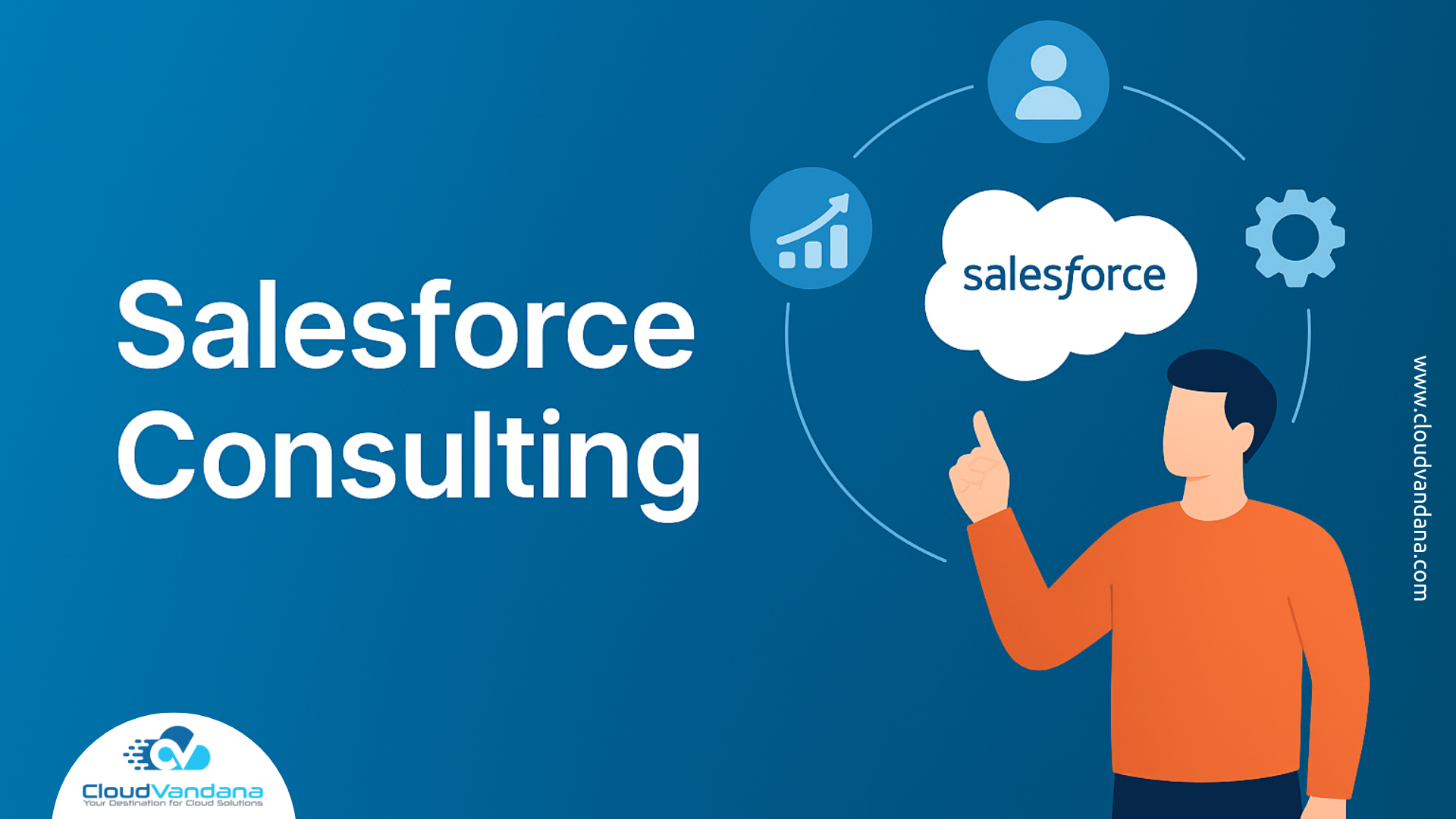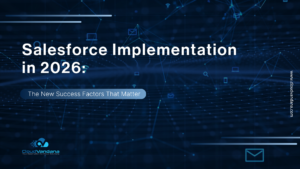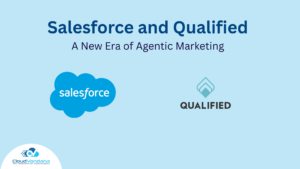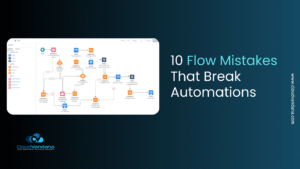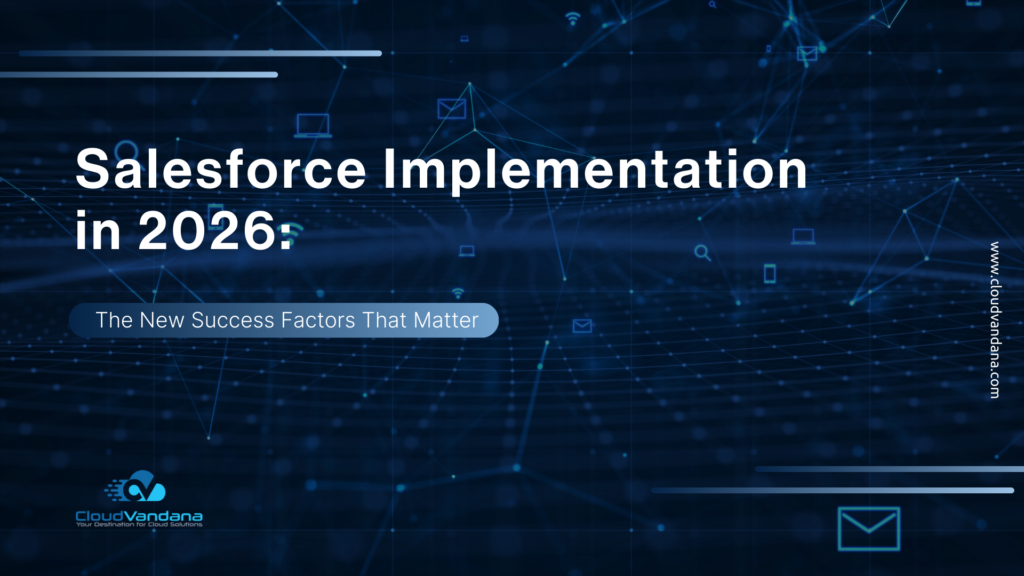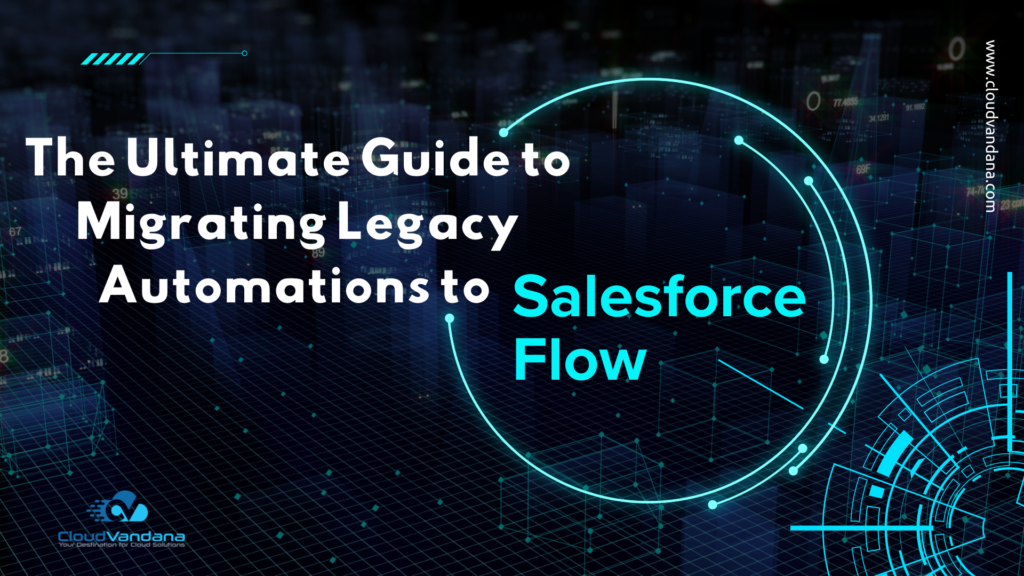Introduction: Why Salesforce Success Isn’t Accidental
Salesforce has evolved far beyond the boundaries of a traditional CRM. Today, it serves as a digital command center for thousands of organizations, enabling them to orchestrate customer relationships, automate operations, forecast revenue, and unify data at scale.
Yet, despite this immense potential, many organizations fail to extract even a fraction of what Salesforce is capable of delivering. Not because they lack motivation, but because Salesforce is a powerful ecosystem—one that demands clarity, strategy, and technical discipline.
The harsh truth is that Salesforce success rarely happens by accident. Companies who achieve transformative results do so because they approach Salesforce with a long-term, architectural mindset. They treat it as a growth investment, not a plug-and-play tool. This is precisely where a Salesforce consulting firm becomes not just helpful but essential.
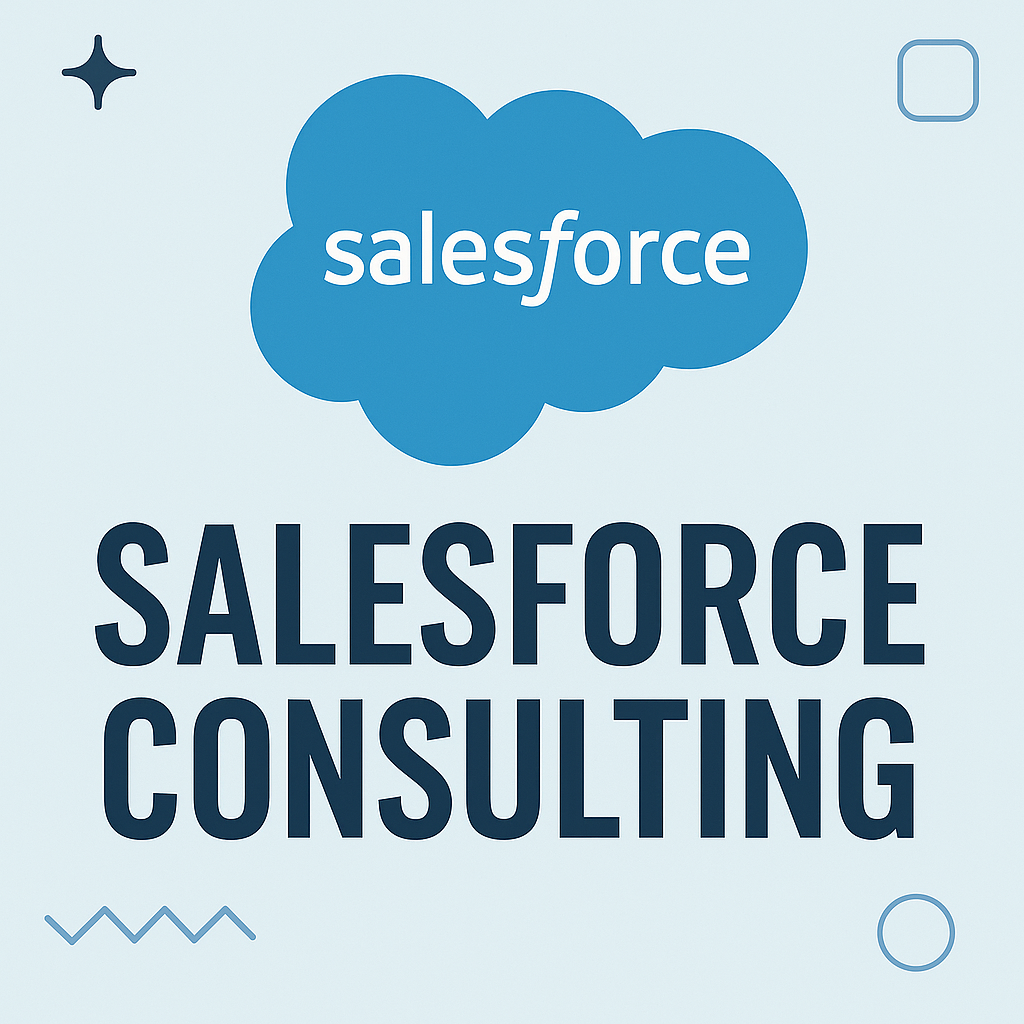
A consulting team enters with expertise, structure, and foresight—guiding the business through the labyrinth of decisions that ultimately define whether Salesforce becomes a growth engine or a costly underutilized database.
In the modern era, where operational efficiency is no longer a luxury but a necessity, having expert partners by your side can be the difference between stagnation and breakthrough performance.
Hiring a Salesforce consulting firm gives organizations the ability to innovate faster, avoid costly mistakes, and build an ecosystem that doesn’t just work today but scales effortlessly into the future.
Table of Contents
- Introduction: Why Salesforce Success Isn’t Accidental
- Understanding the Complexity of Salesforce Ecosystems
- Benefit #1: Strategic Clarity from Day One
- Benefit #2: Faster and Flawless Implementations
- Benefit #3: Customizations That Actually Scale
- Benefit #4: Access to Certified Expertise Across Clouds
- Benefit #5: Industry-Specific Best Practices
- Benefit #6: Clean, Accurate, and Governed Data
- Benefit #7: Intelligent Automation and AI Enablement
- Benefit #8: Stronger User Adoption and Change Enablement
- Benefit #9: Cost Optimization and ROI Maximization
- Benefit #10: Robust System Security and Compliance
- Benefit #11: Continuous Optimization and Support
- Benefit #12: Integration Without Chaos
- Benefit #13: Reduced Risk, Increased Operational Continuity
- Benefit #14: Enhanced Reporting and Analytics
- Benefit #15: Expert Guidance for Complex Projects
- Benefit #16: Access to a Full Bench of Talent
- Benefit #17: Predictable Timelines and Project Governance
- Conclusion: Why Working with a Salesforce Consulting Firm Pays for Itself
- 1. Why should a business hire a Salesforce consulting firm instead of doing everything in-house?
- 2. Are Salesforce consultants worth the investment for small and mid-sized businesses?
- 3. How do Salesforce consultants accelerate implementation timelines?
- 4. What certifications should a reliable Salesforce consulting firm have?
- 5. Can a consulting firm help fix an already messy or broken Salesforce setup?
- 6. How do consultants help improve user adoption?
- 7. What role do Salesforce consultants play in long-term system maintenance?
- 8. Do Salesforce consultants help with integrations?
- 9. How do consulting firms ensure Salesforce stays secure?
- 10. Can a Salesforce consulting firm help with automation and AI features?
- 11. How do consulting firms contribute to better reporting and analytics?
- 12. How do I choose the right Salesforce consulting partner?
- Why Choose CloudVandana
- YOU MIGHT ALSO LIKE
Understanding the Complexity of Salesforce Ecosystems
The multi-layered nature of Salesforce
Salesforce is deceptively complex. At a glance, it looks like a clean interface with intuitive buttons and menus. But underneath lies a dense architecture of objects, relationships, automation engines, AI models, APIs, permission layers, security controls, and customizable workflows that interlock like a vast, dynamic puzzle.
The platform spans multiple clouds—Sales, Service, Marketing, Experience, Commerce, CPQ, Industry Clouds—and each comes with its own set of rules and best practices. Add in AppExchange apps, third-party integrations, and industry-specific requirements, and the ecosystem becomes even more multifaceted.
Understanding how these layers interact is critical. A small misconfiguration in automation can disrupt downstream processes. A poorly structured object model can create data chaos. A wrong permission assignment can expose sensitive information. The complexity isn’t meant to intimidate—it’s simply meant to illustrate why expert oversight is invaluable.
Why “out-of-the-box” is rarely enough
While Salesforce ships with powerful native capabilities, real-world business operations are rarely generic. Companies have unique processes, approval flows, hierarchies, compliance needs, integration touchpoints, and customer journeys. The “default” setup simply cannot reflect these nuances.
Without customization, organizations encounter common symptoms:
- Sales teams spend more time clicking than selling.
- Service agents struggle to find critical information.
- Leaders cannot trust dashboards due to inconsistent data.
- Workflows break as teams scale.
A consulting firm bridges this gap by translating business needs into architecture that is flexible, resilient, and purpose-built. They ensure that Salesforce doesn’t just mimic existing processes—it enhances them.
Benefit #1: Strategic Clarity from Day One
Aligning Salesforce with business goals
Too many Salesforce implementations start tactically rather than strategically. Teams dive into creating fields, objects, and dashboards without clarifying why they need them in the first place. A consulting firm begins by understanding the organization’s real drivers: revenue targets, operational bottlenecks, customer pain points, compliance needs, and go-to-market priorities.
From there, they architect Salesforce in a way that directly supports those objectives. Decisions become intentional rather than reactive. Every automation, every field, every dashboard exists for a reason—and that reason is tied directly to business outcomes.
Eliminating guesswork
Trial-and-error is expensive. Guessing how to configure Salesforce leads to inconsistencies, breaks, rework, and mounting frustration. Consultants eliminate this uncertainty. They’ve seen dozens of implementations, solved hundreds of unique problems, and understand how decisions ripple across the system. Instead of experimenting, teams execute with clarity.
And clarity is powerful. It saves money, accelerates deployment, and removes friction from every stage of the Salesforce journey.
Benefit #2: Faster and Flawless Implementations
Reducing setup friction
Implementing Salesforce internally often takes months longer than expected. Teams get caught in configuration loops, build inefficient automations, or overlook critical setup steps.
Consulting firms bring repeatable frameworks—proven sequences of discovery, architecture, development, testing, and deployment—that dramatically compress timelines.
Their experience eliminates the stops and restarts that plague inexperienced internal teams. They already know what roadblocks to expect and how to avoid them.
Avoiding early-stage technical debt
Technical debt forms when shortcuts are taken early in the implementation. Poor data models, misaligned automations, ungoverned integrations, inconsistent naming conventions—all of these errors compound over time.
A consulting firm prevents this from happening by:
- Designing scalable object architecture
- Building clean automation layers
- Implementing proper naming, documentation, and governance
- Preventing unnecessary custom code
- Creating strong integration patterns
The result? A platform that grows smoothly rather than collapsing under its own weight.
Benefit #3: Customizations That Actually Scale
Building long-term architecture
The architecture of your Salesforce environment determines everything—speed, reliability, scalability, reporting accuracy, and security. When internal teams build without architectural principles, they unintentionally create rigid structures that break under pressure.
Consultants design Salesforce with foresight. They think in terms of years, not weeks. They plan for user growth, process expansion, multi-cloud adoption, data volume increases, and future automation needs. This ensures the system remains stable no matter how fast the business evolves.
Designing future-proof workflows
Workflows that seem sufficient today may become obsolete tomorrow. A consulting firm avoids tightly coupled, breakable automations. They implement processes using best practices—Flow standards, triggered orchestration, reusability, and modular design. This ensures your workflows adapt seamlessly to new business models, products, markets, and strategies.
Benefit #4: Access to Certified Expertise Across Clouds
Why certifications matter
Salesforce certifications represent mastery. They validate that a consultant has undergone rigorous testing, training, and real-world application of platform features. Certifications matter because they reduce risk. They ensure that whoever touches your system understands security implications, architecture standards, and multi-cloud functionality.
Multi-cloud proficiency
Most companies eventually need more than just Sales Cloud. They expand into service operations, customer communities, marketing automation, quoting engines, subscription models, and industry workflows. Consulting firms bring cross-cloud knowledge so every part of the business works together rather than in isolated silos.
Benefit #5: Industry-Specific Best Practices
Finance
The financial sector demands precision. Consultants bring frameworks for regulatory compliance, role hierarchies, approval chains, audit trails, and secure access patterns. These aren’t optional—they’re mission-critical.
Healthcare
Healthcare requires a delicate balance between usability and confidentiality. Consulting teams understand HIPAA requirements, patient data governance, consents, and referral workflows. Their experience keeps organizations from making regulatory mistakes that could have significant consequences.
SaaS & Technology
The SaaS world thrives on speed. Consultants bring proven methodologies for subscription lifecycles, churn prevention, renewals, onboarding workflows, trials, and customer health scoring—turning Salesforce into a sophisticated revenue engine.
Benefit #6: Clean, Accurate, and Governed Data
Data quality frameworks
Data is the lifeblood of Salesforce. When it’s inconsistent, duplicated, incomplete, or fragmented, the entire system suffers. A consulting firm builds robust data cleansing and governance frameworks. They set rules for validation, deduplication, naming conventions, and formatting consistency.
Clean data doesn’t happen by accident—it happens by design.
Master data consistency
Master data (Accounts, Contacts, Products, Territories, etc.) must be consistent across systems. Consultants ensure this consistency through mapping, integration rules, master data models, and source-of-truth policies. The result is a CRM that leadership can trust.
Benefit #7: Intelligent Automation and AI Enablement
Salesforce Flow excellence
Flow is the backbone of automation. But poorly designed flows can create errors, loops, and performance issues. Consultants build robust, efficient, scalable flows that reduce manual work, eliminate human error, and streamline operations across sales, service, operations, and finance.
Leveraging AI + Data Cloud
Salesforce is entering a new era with Data Cloud + AI. Consulting firms help organizations activate predictive insights, next-best actions, automated recommendations, intelligent routing, and real-time decision-making. They make the future feel accessible.
Benefit #8: Stronger User Adoption and Change Enablement
Training that sticks
User adoption is a science. Consultants provide training that is role-based, task-oriented, engaging, and grounded in real scenarios. This eliminates resistance, confusion, and post-launch frustration.
Proven adoption frameworks
Change enablement requires communication strategies, adoption monitoring, feedback loops, and incentive alignment. Consulting firms bring frameworks that ensure new processes stick and users feel empowered rather than overwhelmed.
Benefit #9: Cost Optimization and ROI Maximization
Reducing licensing waste
Without expert oversight, organizations often:
- Over-purchase licenses
- Pay for unused features
- Assign the wrong license types
- Maintain unnecessary add-ons
Consultants optimize licensing, saving thousands annually.
Increasing revenue visibility
When dashboards, forecasting models, and pipelines are reliable, leadership can make confident decisions. Consultants help configure meaningful metrics—leading indicators, aging, conversion ratios, velocity scores—that sharpen revenue strategy.
Benefit #10: Robust System Security and Compliance
Role hierarchies
Role hierarchies, permission sets, and sharing rules determine who sees what. Consultants design these security layers with zero ambiguity, minimizing both risk and operational delay.
Data security & audits
Consulting firms implement auditing frameworks, field tracking, login monitoring, IP restrictions, encryption, and governance controls to ensure sensitive data is always secure.
Benefit #11: Continuous Optimization and Support
Release management
Salesforce releases hundreds of new features every year. Consultants stay ahead of these updates and help organizations activate the right enhancements at the right time.
Proactive monitoring
Instead of waiting for errors or slowdowns, consulting firms monitor system health and address risks before they cause downtime.
Benefit #12: Integration Without Chaos
API orchestration
Integrations are tricky. APIs can overload systems, create sync failures, or introduce inconsistent data. Consultants design clean, scalable, secure integration patterns that ensure data flows smoothly.
Third-party system alignment
ERP, finance tools, HRMS, marketing automation, customer support platforms—consulting firms ensure every system communicates cohesively with Salesforce.
Benefit #13: Reduced Risk, Increased Operational Continuity
Dependency reduction
Over-relying on a single internal admin or developer creates risk. If they leave, knowledge leaves with them. Consulting firms eliminate this dependency with a team-based approach.
Risk mitigation strategies
From data backups to architectural decisions, consulting teams help organizations avoid costly mistakes that jeopardize productivity.
Benefit #14: Enhanced Reporting and Analytics
Custom dashboards
Dashboards are more than visualizations—they are strategic instruments. Consultants build dashboards that surface insights leadership can actually use to drive performance.
Actionable insights
A consulting firm helps interpret anomalies, identify trends, and provide context that ensures data leads to action rather than confusion.
Benefit #15: Expert Guidance for Complex Projects
CPQ
Salesforce CPQ can be transformative but complex. Consultants streamline product bundles, pricing rules, approvals, and quoting workflows to make selling faster and more accurate.
Service Cloud transformations
Cases, SLAs, omni-channel routing, knowledge management, entitlement models—all of these require refined implementation strategies. Consultants make them work seamlessly.
Benefit #16: Access to a Full Bench of Talent
Admin + Developer + Architect synergy
A complete consulting team brings breadth and depth that one internal resource simply cannot match. This synergy accelerates execution and ensures quality.
Avoiding single-point-of-failure
When knowledge is shared across a team, the organization is protected from disruptions caused by turnover, burnout, or bandwidth limitations.
Benefit #17: Predictable Timelines and Project Governance
Milestone-based execution
Consultants operate using structured sprints, defined deliverables, clear timelines, and transparent roadmaps. This keeps projects on track and eliminates ambiguity.
Strong documentation
Documentation ensures continuity. Consultants create configuration logs, process documentation, architectural diagrams, and troubleshooting guides that empower future teams.
Conclusion: Why Working with a Salesforce Consulting Firm Pays for Itself
Hiring a Salesforce consulting firm is not a cost—it is an accelerator. Every hour saved, every error avoided, every automation built, every insight delivered multiplies the value of the investment. Salesforce has limitless potential, but only when implemented with precision, intention, and long-term architectural thinking.
A consulting firm ensures your organization doesn’t just adopt Salesforce…
It thrives with it.
It scales with it.
It grows because of it.
With the right partner, Salesforce becomes more than a system.
It becomes a competitive advantage.
FAQs
1. Why should a business hire a Salesforce consulting firm instead of doing everything in-house?
A consulting firm brings specialized expertise, avoids costly mistakes, accelerates implementation, and delivers scalable architecture. Most internal teams lack the multi-cloud experience required to build Salesforce correctly the first time.
2. Are Salesforce consultants worth the investment for small and mid-sized businesses?
Yes. SMBs see some of the highest ROI because consultants help them avoid expensive rework, optimize licensing, and build lean, high-performing processes without unnecessary customization.
3. How do Salesforce consultants accelerate implementation timelines?
Consultants use proven frameworks, prebuilt assets, repeatable methodologies, and technical experience to eliminate delays and prevent trial-and-error setups—reducing timelines from months to weeks.
4. What certifications should a reliable Salesforce consulting firm have?
Look for Admin, Developer, Architect, Sales Cloud, Service Cloud, Experience Cloud, Marketing certifications, and ideally industry-specific accreditations. These indicate deep mastery across Salesforce clouds.
5. Can a consulting firm help fix an already messy or broken Salesforce setup?
Absolutely. Consultants perform org audits, restructure data models, clean up automation, optimize performance, and rebuild processes using best practices. Many projects begin with rescue and remediation.
6. How do consultants help improve user adoption?
They provide role-based training, simplified workflows, automation that reduces manual work, and clear documentation. Adoption frameworks help employees use Salesforce naturally and consistently.
7. What role do Salesforce consultants play in long-term system maintenance?
Consultants manage release updates, monitor performance, refine automations, enhance security, and continuously optimize processes as the business evolves—keeping Salesforce healthy and future-ready.
8. Do Salesforce consultants help with integrations?
Yes. They handle API strategy, middleware recommendations, ERP/finance/HRMS integrations, authentication flows, and data synchronization rules to ensure systems work in harmony.
9. How do consulting firms ensure Salesforce stays secure?
They configure permission sets, role hierarchies, sharing rules, audit logs, IP restrictions, field security, and compliance frameworks that protect sensitive data from unauthorized access.
10. Can a Salesforce consulting firm help with automation and AI features?
Definitely. They build optimized Flows, design end-to-end automation frameworks, activate AI-powered insights, and help implement Salesforce Data Cloud for real-time intelligence.
11. How do consulting firms contribute to better reporting and analytics?
They design dashboards that align with KPIs, implement meaningful metrics, fix data inconsistencies, and create reporting layers that enable accurate forecasting and decision-making.
12. How do I choose the right Salesforce consulting partner?
Look for a firm with strong certifications, relevant industry experience, transparent processes, proven case studies, multi-cloud capability, and a collaborative approach—like CloudVandana.
Why Choose CloudVandana
If your organization is ready to unlock Salesforce’s full capabilities with confidence, clarity, and expert execution, CloudVandana is the partner you can trust. Our certified specialists bring deep multi-cloud expertise, rigorous architectural standards, and industry-proven frameworks that transform your Salesforce environment into a true growth engine.
Whether you’re implementing, optimizing, automating, integrating, or scaling—CloudVandana ensures every step delivers measurable impact and long-term value.
Ready to elevate your Salesforce ecosystem?
Let’s build something extraordinary, together.
👉 Talk to CloudVandana today and take your Salesforce success to the next level.

Atul Gupta is CloudVandana’s founder and an 8X Salesforce Certified Professional who works with globally situated businesses to create Custom Salesforce Solutions.
Atul Gupta, a dynamic leader, directs CloudVandana’s Implementation Team, Analytics, and IT functions, ensuring seamless operations and innovative solutions.



